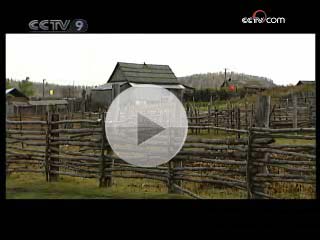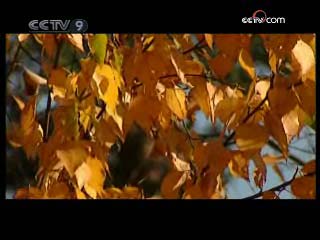------Program code: DO-080819-01067 (what's this?)
Source: CCTV.com
08-19-2008 08:35
 |
By the Argun River there lives a small ethic group with a population of less than 20,000. Here, legends are told of great courage; true love has been sparked by an honest heart; and love songs have been sung by the river.
 |
The Argun River has its source among the Greater Khingan Mountains in Inner Mongolia. From there, it winds its way through thousands of ravines, seemingly unwilling to leave the luxuriant mountain forests. The high mountains, dense forests and limpid rivers have nurtured a number of ethnic groups in Northern China. Today, Olunchun, Owenke and Daur people still live in this vast and rich cradle. After it eventually leaves the mountain forest, the Argun River flows across the Hulunbuir Grassland, which is home to the Mongolian nationality. Here, Genghis Khan once founded his empire, before going on to conquer vast territories to the west. The Argun is considered their mother river by the minority nationalities of northeast China. It also forms part of the border between China and Russia. On the far side, Russian villages can be seen. Even on the Chinese side of the river, there are Russian-style houses, where ethnic Russians live. And here, the traditional Russian accordion plays a legendary love song.
China’s Russian ethnic minority have a population of little more than 15,000, scattered mainly in the Yili Region of Xinjiang and Argun in Hulunbuir, Inner Mongolia. They have a history of less than 200 years in China. Early in 1689, the Qing government signed the Sino-Russian Treaty of Nerchinsk. This defined the Argun River as part of the border between the two countries. Prior to the treaty, there had been no clear border between China and Russia, so people living along the frontier frequently came into contact with each other. In the late 19th and early 20th Centuries, a great number of refugees from Shandong and Hebei Province flocked to the river area. ????’s grandfather, Qu Hongsheng, was among these refugees. But why did his offspring have Russian names and a different appearance? Qu’s experiences, which are at the same time harsh and romantic, are a strange chapter in the history of this relatively young ethnic group.
The Chinese workers soon became well known in ??. The Russians were full of praise for Qu Hongsheng and his Chinese friends and their toughness, dexterity and ability to manage their lives in an orderly fashion. And once they had learned some Russian, they got on even better with the local people.
Qu Hongsheng and his Chinese friends gained a reputation as hard workers, and they led a pleasant life. Then the October Revolution broke out, opposed by the white bandits. The young men of the village were enlisted in the army, leaving only the old people and young women behind. By this time, the young Chinese men, who were eighteen or nineteen at the time and had worked so hard to establish themselves in business, were well integrated into local society. But what would happen to them in the Russian village?
To fulfill his promise and win the heart of the girl he loved, Qu Hongsheng returned to China. He crossed high mountains, thick forests and busy rivers; he fought black bears and wild wolves. He hurried home on his horse, never stopping to rest.
The journey took Qu four days. But even in Manzhouli, he couldn’t find the skirt he was looking for. So he set out for Haila’er in the east. There he went form store to store, until he finally found a skirt. But as he prepared to return with his prize, he found his horse was exhausted after its five-day gallop.
Meanwhile the girl was anxiously counting the days. She didn’t know if Qu Hongsheng would come back safely, and she regretted teasing him. What if he met with an accident on the way? How could she face herself? What if he came back with the skirt? Would she really marry this young Chinese man? The girl was in a quandary.
In the early 20th century, China’s peasants followed the dictates of their parents and the advice of matchmakers when it came to marriage. But Qu Hongsheng was in Russia, and so a long way from home. This meant he could make his decisions for himself. His boldness had won the heart of a Russian girl. But was he really prepared to settle down, so far from his motherland?
One winter more than seventy years ago, Qu Hongsheng returned to China with his family. Northeastern China was occupied by the Japanese army at the time. Unable to get back to Hebei Province, the Qu Family settled by the Argun River, reasoning that in the event of war, they could escape back to Russia. They had brought money and some valuables with them, as well as a Russian-style horse-drawn sleigh. Today, Qu’s son Ivan still uses this kind of sleigh. It’s not only convenient, but also a way of remembering his parents.
The Russian-style four-wheel carriage is a unique sight by the Argun River in summer. The hand-made carriage is delicately built. But without tyres, it is very bumpy. Yuri uses the carriage to take tourists to the river. But by late autumn, there are few tourists.
